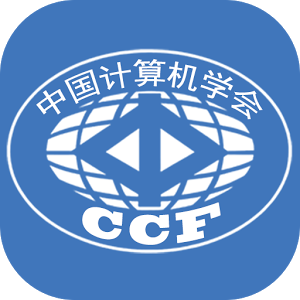工学类 | 会议专刊截稿信息5条
工学
ICEST 2018
International Scientific Conference on Information, Communication and Energy Systems and Technologies
全文截稿: 2018-03-31
开会时间: 2018-06-28
会议难度: ★★★
CCF分类: 无
会议地点: Sozopol, Bulgaria
网址:http://icestconf.org/
We are pleased to inform you that the 53rd International Scientific Conference on Information, Communication and Energy Systems and Technologies ICEST 2018 will be held from June 28 through 30 2018, at the Holiday House Lazur of Technical University of Sofia in Sozopol, Bulgaria.
The ICEST Conference, which is a successor of EIST Conference, has up to now been successfully organized by the Faculty of Electronic Engineering, Niš, Serbia and the Faculty of Technical Sciences, Bitola, Macedonia.
Conference Topics:
-Radio Communications, Microwaves, Antennas
-Telecommunication Systems and Technology
-Signal Processing
-Digital Image Processing
-Computer Systems and Internet Technologies
-Informatics and Computer Science
-Electronics
-Energy Systems and Efficiency
-Control Systems
-Measurement Science and Technology
-Remote Ecological Monitoring
-Engineering Education
-Other
工学
ICAEM 2018
International Conference on Applied and Engineering Mathematics
全文截稿: 2018-04-13
开会时间: 2018-09-04
会议难度: ★★
CCF分类: 无
会议地点: Pakistan
网址:http://icaem.hitecuni.edu.pk/
International Conference on Applied and Engineering Mathematics (ICAEM’18) is being organized under the auspices of HITEC University, Museum Road Taxila, Pakistan. The conference will provide a platform for the community of applied and engineering mathematics to meet and to exchange ideas. All submitted papers will be under peer review and accepted papers will be published in the IEEE Xplore Digital Library. Extended version of accepted/selected papers will be forwarded for publication in the special issues of appropriate Journals. The best paper among those accepted for publication will also be given the BEST PAPER AWARD.
The topics of the ICAEM’18 include, but not limited to, the following:
-Aerodynamics
-Chromatography and Applications
-Computational Fluid Dynamics
-Computational Rheology
-Differential Equations and Applications
-Finite Element Analysis and Applications
-Fluid Mechanics
-Fuzzy Differential Equations and Applications
-General Relativity and Cosmology
-Numerical Linear Algebra and Applications
-Numerical Methods/Analysis and Applications
-Pure and Applied Cryptography
工学
EMSICC 2018
International Workshop on Energy Management for Sustainable Internet-of-Things and Cloud Computing
全文截稿: 2018-04-30
开会时间: 2018-08-06
会议难度: ★★
CCF分类: 无
会议地点: Barcelona, Spain
网址:http://cedric.cnam.fr/workshops/emsicc18/index.html
With the emergence of wireless communication and geolocation technologies, new innovative applications are designed moving towards the Internet of Things (IoT), Cyber-physical systems and Cloud computing, targeting virtualization technologies and intensive data computation. Due to their constraints in terms of energy, computational power, memory, high mobility, sporadic connectivity, and sometimes security constraints, some smart devices need to outsource their data storage and computation on the Cloud. Hence, the Internet of Things as well as Cyber-physical systems require an efficient energy management to save energy and optimize energy consumption through communication protocols, scheduling approaches, self-organization mechanisms, offloading techniques, security solutions, etc. that rely on energy-aware and energy-adaptive concepts. In addition, alternative energy sources available in our environment could be used to achieve perpetual functioning without replacing or refilling batteries, such as energy harvesting. On the other side, energy management and optimisation is also a concern for cloud data centers that need to be managed efficiently regarding power consumption, air conditioning, energy saving, and environmental impact. These factors largely improvise cost versus energy optimisation, which can be achieved through various intelligent optimisation and control for IoT and cloud. This workshop will address the range of problems related to energy-aware and energy harvesting management when designing software and hardware platforms for the Internet of Things, Cyber Physical Systems and Cloud computing with respect to intelligent optimisation and distributed computing.
Prospective authors are invited to submit original, previously unpublished work, reporting on novel and significant research contributions, on-going research projects, experimental results and recent developments related to, but not limited, the following topics:
-Energy-aware/energy harvesting scheduling algorithms using intelligence
-Adaptive middleware for energy-efficient computing
-Instrumentation and measurement of energy-efficient computing and networking
-Enhanced performance and QoS in energy-efficient systems
-Resource management in large infrastructures (such as data centers) and in power/energy constrained systems
-Data management in energy-efficient systems
-Sensing, monitoring, control, and management of energy systems
-Modelling, control, and architectures for renewable energy generation resources
-Privacy and security in energy-aware platforms
-Metrics, benchmarks, interfaces, tools to take into account energy dimension
-Energy-aware hardware platforms
-Specifications and validation of energy-aware platforms
-Energy efficiency and virtualization in Cloud of things
-Energy services for smart cities
-Intelligent optimisation and computational intelligence for IoT devices
-Machine learning approaches for energy management
-Learning of patterns of energy deployment in smart applications
-Prediction of anticipated energy consumption.
工学
AEu - International Journal of Electronics and Communications
Special Issue on Recent Advances in the Theory and Applications of Memristors and Other Mem-Systems
全文截稿: 2018-05-15
影响因子: 1.147
中科院JCR分区:
• 大类 : 工程技术 - 4区
• 小类 : 工程:电子与电气 - 4区
• 小类 : 电信学 - 4区
网址: https://www.journals.elsevier.com/aeu-international-journal-of-electronics-and-communications
Memristor was introduced into the circuit theory in 1971. The discovery of a device, later to be known as the HP memristor, brought feverish worldwide interest in memristors. Recently, it was shown that the memristor could be used simultaneously as a memory and a computational element offering this device as a promising building cell for future computer architectures. Other nanodevices, also denoted as “unconventional circuit elements”, come on the scene, the memcapacitors and meminductors being currently the most widely known.
We invite authors to submit original research and review papers, reflecting various aspects of the current state-of-the-art of memristive, memcapacitive and meminductive devices. We are particularly interested in fundamental circuit principles and theorems of memory devices as passive and active two-terminal devices; pending issues of their modeling, software simulation and hardware emulation; their applications not only from the area of computer memories but also novel circuit ideas for analog signal processing and bio-sensors.
Contributions in any of the following areas are welcome:
- Mem-devices: circuit-theoretic properties
- Bio-inspired electronics employing memory elements
- Memristive neural networks
- Massively-parallel analog computing utilizing memristors, memcapacitors or meminductors
- Modeling, simulation, and emulation of memristive, memcapacitive and meminductive systems
- Digital and analog applications of mem-devices
- Material, technological and fabrication aspects
- Mechatronic and other non-electric aspects of memory devices
工学
International Journal of Production Economics
Supply Chain Finance: Latest Research Trends, Models, and Future Perspectives
全文截稿: 2018-10-31
影响因子: 3.493
中科院JCR分区:
• 大类 : 工程技术 - 2区
• 小类 : 工程:工业 - 1区
• 小类 : 工程:制造 - 2区
• 小类 : 运筹学与管理科学 - 2区
网址: https://www.journals.elsevier.com/international-journal-of-production-economics
Supply chain management aims to improve efficiency, speed and accuracy of response to rapidly changing customer requirements through the coordination and integration of materials, information, and financial flows. While companies have worked hard to enhance the flows of goods and information in the supply chain through the use of information technology and relationship management, supply chain managers have paid little attention to the financial flow until recent years. Furthermore, research on the financial flow and how it influences the goods and information flows is also very limited.
In the past years, however, there is an increasing interest in the financial flow from both industry practitioners and academics. Supply Chain Finance (SCF) has become one of the hottest topics among supply chain managers and researcher in countries which are facing dramatic changes in their economic system. SCF aims at collaborative and innovative business models for providing credit and services to Small and Medium-sized Enterprises (SMEs) by converting non-liquid assets (such as raw materials, inventory, account receivable, etc.) into cash. There are four major reasons for this:
There are abundant opportunities for improving profits through enhancement of financial flows. As companies have made significant improvements in integration and coordination of material and information flows, they can identify numerous opportunities for achieving better benefits through the coordination of financial flows as well as the material and information flows. In many supply chains, the SMEs are squeezed by their powerful trading partners. They encounter difficulties in managing supply chain activities due to the lack of funds. Furthermore, traditional banks are not willing to provide credit needed to these SMEs due to a lack of collateral and information asymmetry. The deficiency in the financial flow is the major source of problems in the supply chain.
Digital technologies such as the Internet, Internet of Things (IoT), blockchain, cloud computing and big data are enabling supply chain integration and innovation which then support business model innovations. New business models allow companies to improve transparency and control of all three flows. With the digital linkages of multiple processes across multiple organizations, the information asymmetry is greatly reduced. Financial Service Providers (FSPs) will be able to provide the needed credit and services to SMEs by collaborating with core enterprises in the supply chain. Big data analysis and close loop control of the three flows help the FSPs to evaluate and control risk at lower cost. This makes supply chain financing much more popular than before.
Manufacturers, distributors, logistics service providers and E-commerce Companies (B2C and B2B) are extending their roles in the supply chain. Many of them are building eco-system based business models, which allow them to work with FSPs or make use of their own financial resources to provide innovative SCF services.
Globalization of trade and finance also requires more flexible, lower cost financial products with controllable risk. Many governments provide insurance and credit supports to companies who are exporting products. These government supports also encourages FSP to design SCF services for international trades.
Due to the increasing interests in SCF, studies are needed to understand how SFC can help to improve the efficiency and effectiveness and especially the performance of SMEs in the supply chain. Furthermore, how are different types of companies (manufacturers, suppliers, distributors, retailers, banks, logistics/supply chain companies) participating in SCF? How are some of the key innovations in designing the products and process of SCF services? What are the roles of information technology and big data in evaluating and controlling risks? What are the roles and effective collaborative mechanisms among the different types of organizations in SCF? These are all interesting questions for both industry practitioners and academic researchers.
This is an inter-disciplinary subject that may require a combination of knowledge in finance, supply chain management, and business analytics. The objective of this special issue is to publish research which examines the latest production economics issues in SCF utilizing multiple theoretical lenses and methodologies. We encourage studies with innovative methodologies and theoretical lenses. The theoretical lenses may include, but are not limited to: (i) Transaction cost theory; (ii) Information processing theory; (iii) Credit rationing theory; and (iv) Game theory. The methodologies may include, but are not limited to: (i) Case studies; (ii) Surveys; (iii) Use of secondary and archival data; (iv) Experiments; (v) Analytical modeling; (vi) Computer simulation and complex adaptive systems; and (vi) Big data analytics.
All submitted papers are required to comply with the theme of this special issue within the scope of International Journal of Production Economics (IJPE). We are looking for papers which can create new theories or extend, test and validate existing theories to explain new problems or phenomenon in SCF. We also welcome papers which report new, innovative and best practices in SCF. We also would like to see papers which connect theory with supply chain finance practices and provide managerial guidelines as to how to design and implement SCF services and how to control risks.
Potential topics include, but are not limited to:
- In depth case studies of how companies design and implement SCF services and to control risk;
- Investigation of factors that influence competitive advantages of SCF service providers;
- Studies of how closed loop control of goods, information and financial flow and relationship management influence risks;
- Multi-agent simulation on supply chain finance systems;
- Game-theoretical approach to supply chain finance system;
- The use of internet technology, such as blockchain, and related new business models in SCF;
- The use of internet platform and big data in SCF;
- Use big data for a structured approach to evaluate risks and make credit decisions;
- Investigation of how SCF services help SMEs improve their performance.
下载Call4Papers App,获取更多详细内容!


登录查看更多
相关内容
Arxiv
78+阅读 · 2019年11月10日





